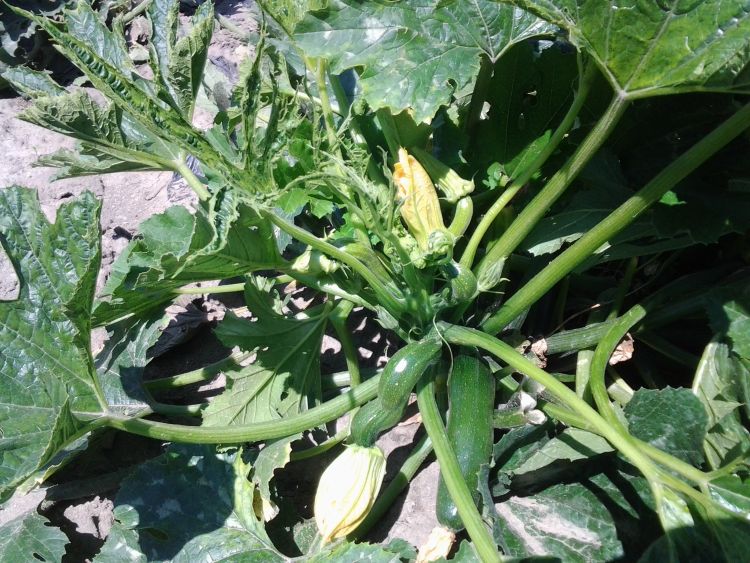Nov 30, 2023USDA amends bioengineered list on summer squash
The USDA Agricultural Marketing Service (AMS) has amended the National Bioengineered Food Disclosure Standard’s List of Bioengineered Foods on summer squash.
Zucchini and yellow summer squash that have been engineered to resist certain plant diseases, including zucchini yellow mosaic virus and watermelon mosaic virus, will now have to be identified as “squash (summer, coat protein mediated virus-resistant varieties).” Before, they were identified solely as “squash (summer),” and the new mandate is designed to be more specific.


According to the final rule on the amendment to the list in the Federal Register, the term “coat protein mediated virus-resistant” explains a subset of pathogen derived resistance in which a gene from a virus is added to a plant genome through biotechnology. The added viral coat protein gene then slows or prevents subsequent viral infection. AMS determined that “coat protein-mediated virus resistance” is the preferred terminology as it is more descriptive than “coat protein-mediated protection,” and it is used by academics and the industry. AMS believes the preferred term is more helpful to regulated entities and consumers.
Two varieties of bioengineered (BE) squash use coat protein-mediated virus resistance to achieve mosaic virus resistance.
The final rule on the change becomes effective on Dec. 29 and mandatory compliance will begin on June 23, 2025.
Regulations establishing the List of Bioengineered Food became effective in February 2019 and mandatory compliance began Jan. 1, 2022. The list also includes these fruits and vegetables:
- Arctic-brand apple varieties
- Eggplant (BARI Bt Begun varieties)
- Papaya (ringspot virus-resistant varieties)
- Pineapple (pink flesh varieties)
- Potato
The new rule also adds Bt insect-resistant sugarcane varieties to the list.
The comment period for the proposed rule closed on Sept. 20, 2022, with a total of 37 comments; none opposing the summer squash revision or sugarcane addition.
Regulations require AMS to develop and update the list to identify bioengineered products that are approved for production and in commercial production somewhere in the world. Bioengineered foods are defined as those that contain detectable genetic material that has been modified through in vitro recombinant deoxyribonucleic acid techniques and for which the modification could not otherwise be obtained through conventional breeding or found in nature.
The current list identifies the crops or foods that are available in a bioengineered form to aid regulated entities considering whether they may need to make a BE disclosure. The standard, 7 CFR Part 66, establishes the need for recordkeeping by regulated entities who are using or selling the crops and foods on the List.
More information about the standard and the list are available on the AMS website at www.ams.usda.gov/rules-regulations/be/bioengineered-foods-list.














